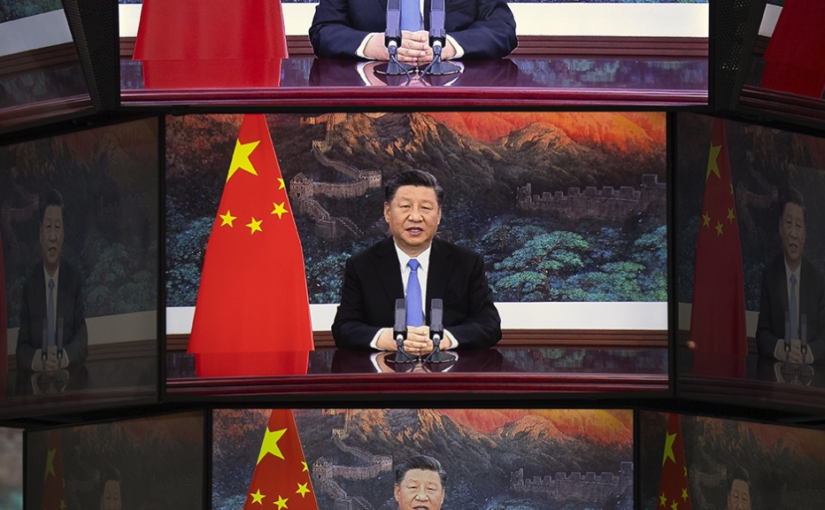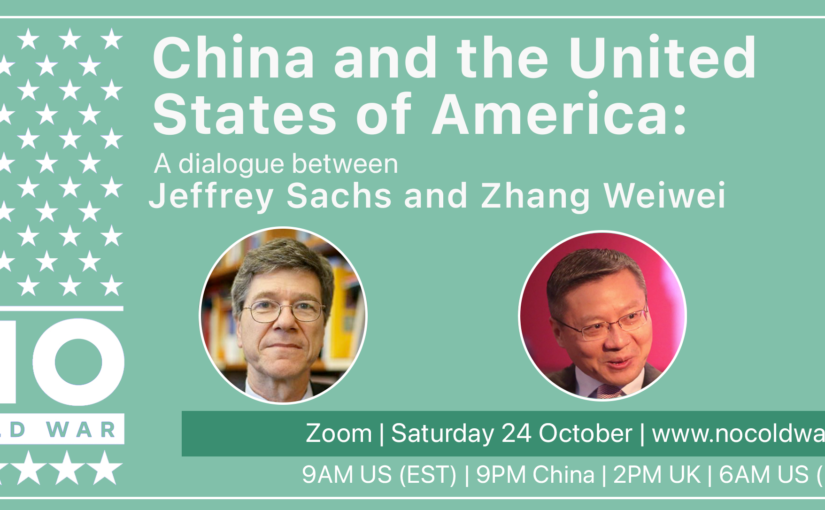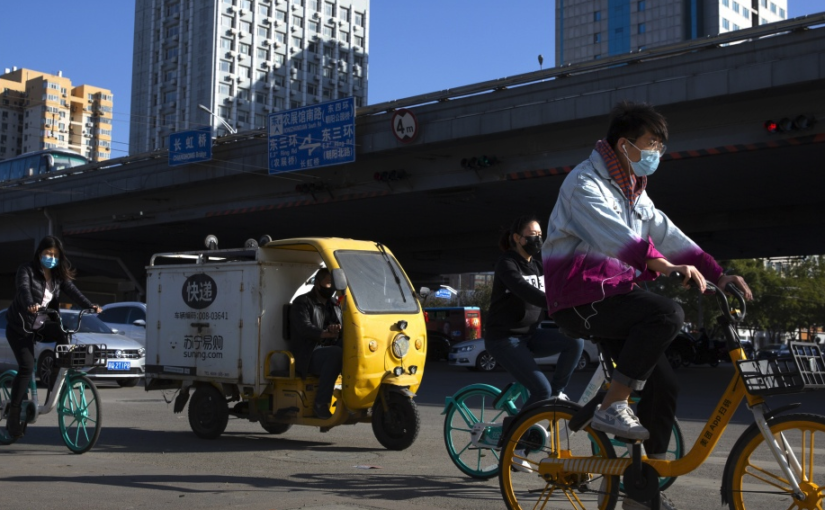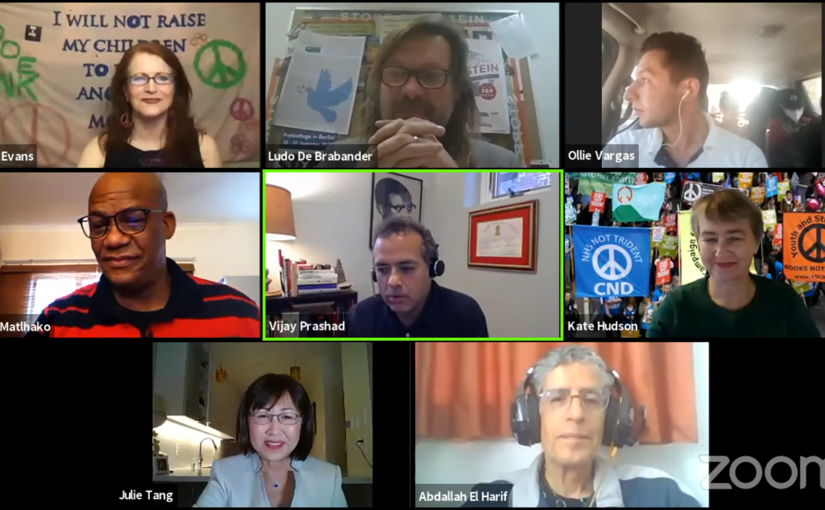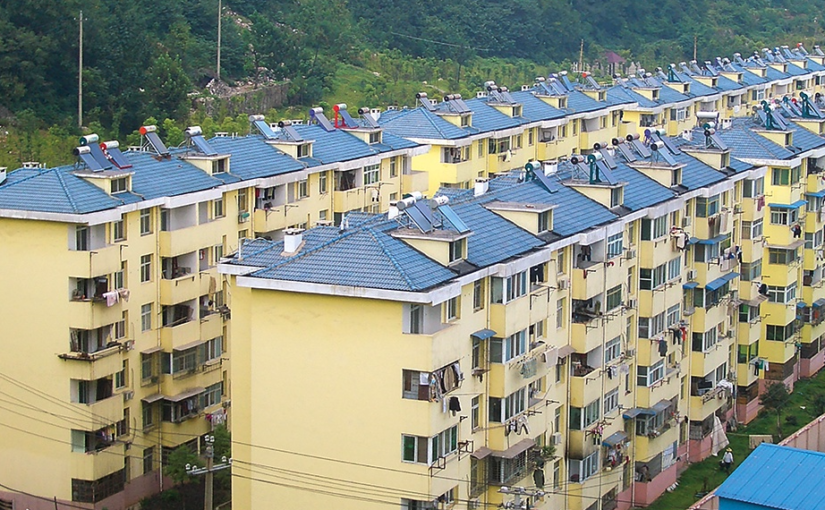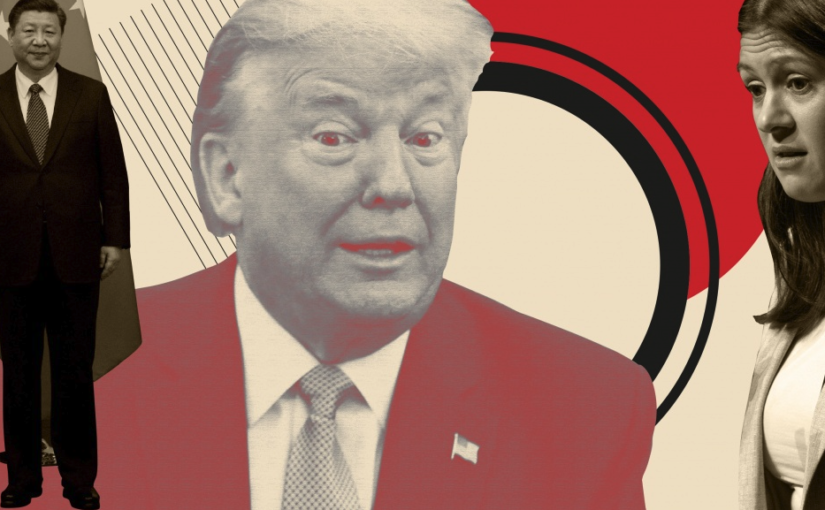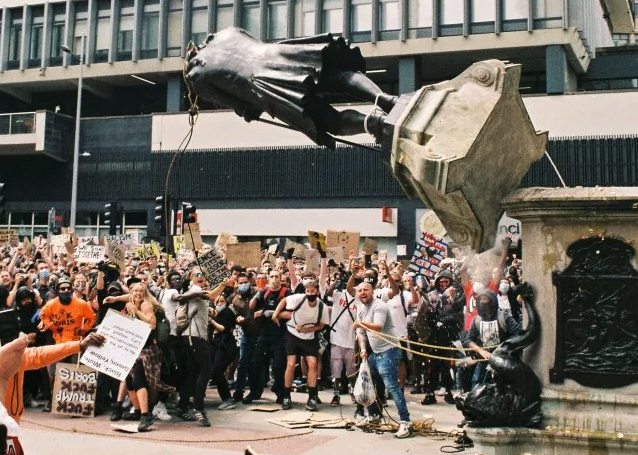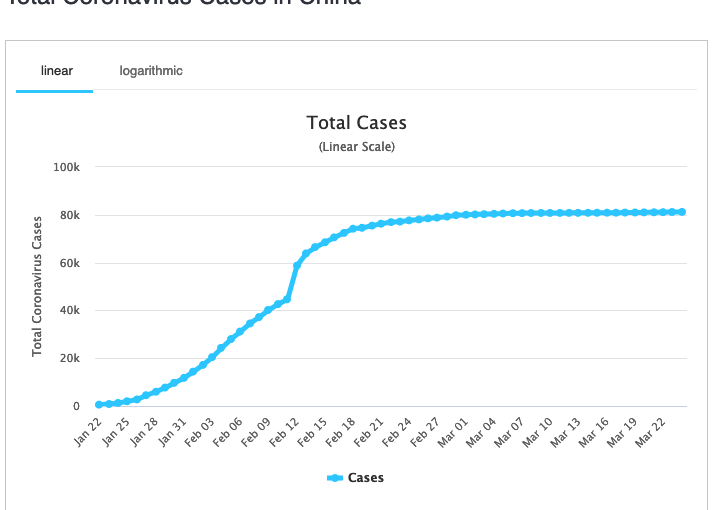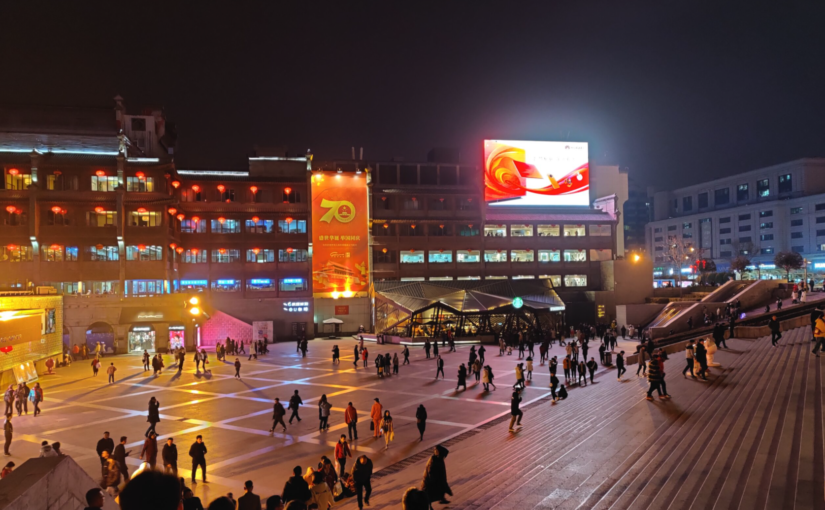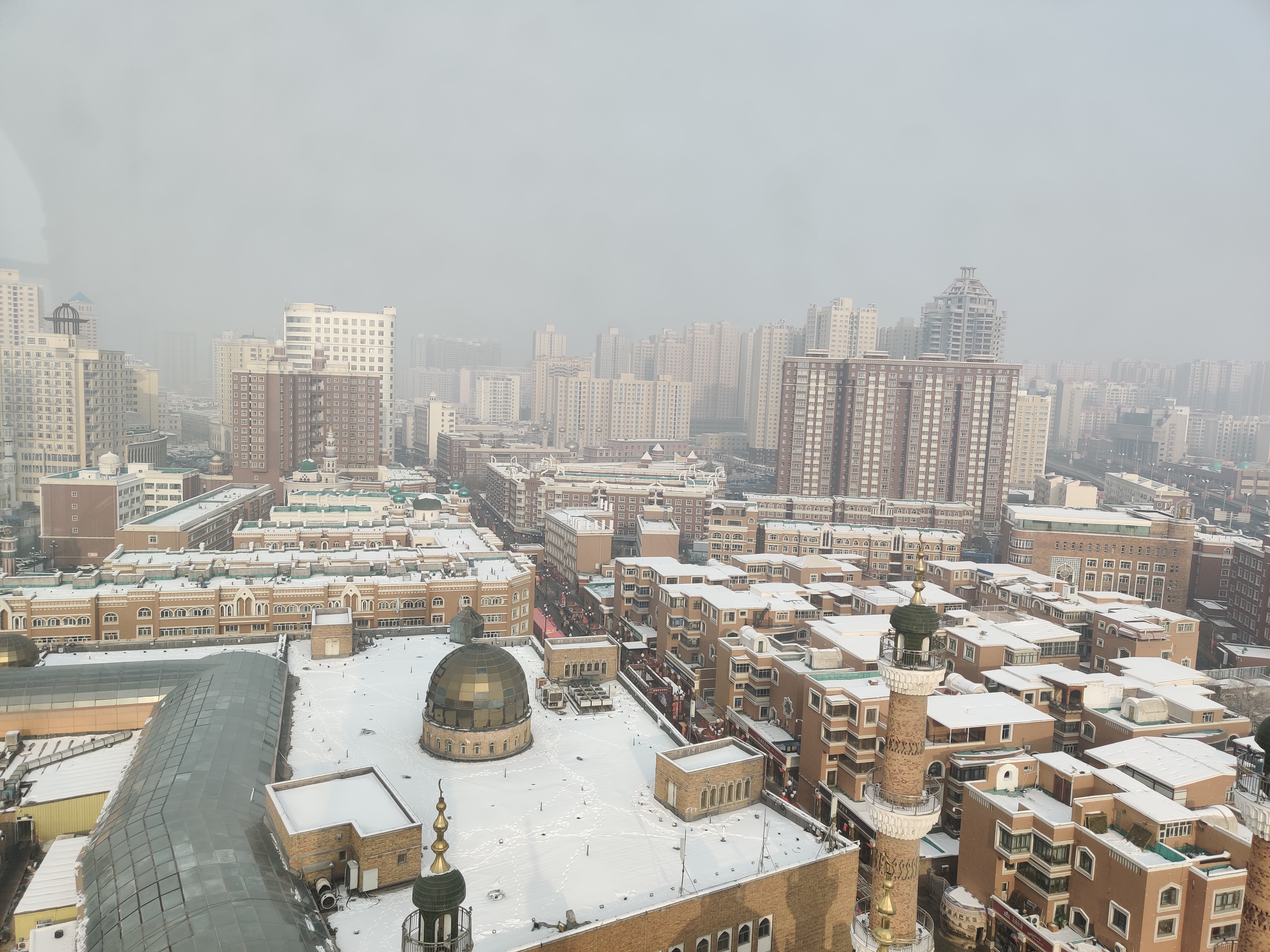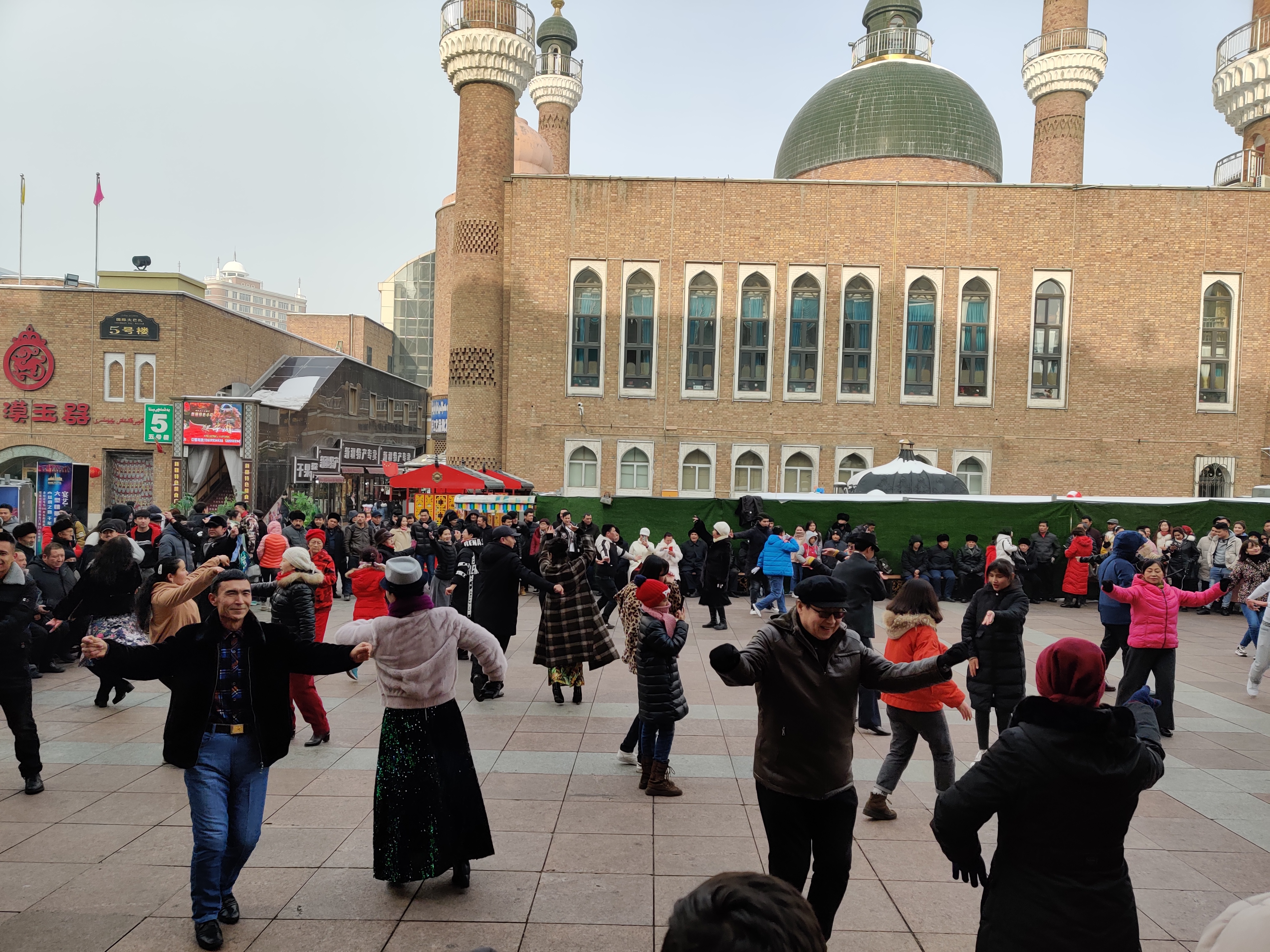On 26 September 2020, the No Cold War campaign held its second webinar: an international peace forum, bringing together peace movements from around the world (including the Campaign for Nuclear Disarmament, Stop the War Coalition, CODEPINK, Black Alliance for Peace, Pivot to Peace and Vrede vzw) to analyse the dangerous deterioration in US-China relations and discuss what measures we can take to reverse the tide of war.
The first panel was chaired by Indian historian and journalist Vijay Prashad of the Tricontinental Institute for Social Research, and was focused on an analysis of the current political situation. Vijay opened the event by paying tribute to his fellow anti-imperialist journalist Andre Vltchek, who tragically died just a few days prior to the webinar.
Vijay noted that the Doomsday Clock, maintained by the Bulletin of the Atomic Scientists, is currently set at 100 seconds to midnight. The threat to humanity is very high, and a significant component of this is the bullying and belligerent attitude that the US is taking towards China and Russia. We are living through dangerous times, and it is the responsibility of all of us to fight for peace.
Jodie Evans, a co-founder of the US-based women-led grassroots peace organisation CODEPINK, spoke of how the US administration is using Cold War tactics in a bid to divert attention from the parlous state of American capitalism. She pointed out that the US today is a country in decline; a country characterised by increasing homelessness and poverty, failure to respond appropriately to the climate emergency, disastrous handling of the pandemic, mass incarceration, and the extensive use of solitary confinement.
While it paints itself as a force for peace and democracy in the world, the US has attacked over 80 countries since the end of World War II, has dropped bombs on 39 countries, and is the only state in the world to have used nuclear weapons.
Jodie also pointed to the standard pattern of propaganda that’s employed whenever the US defines an ‘enemy’ that it wants to attack, building a sophisticated media campaign to demonise countries and create a popular sentiment in favour of war.
Jodie concluded by stating that the US peace movement has a huge responsibility to mobilise the widest possible alliance of forces to stop the drive to war.
The second speaker was Chris Matlhako, Second Deputy General Secretary of the South African Communist Party. Chris spoke of the campaign in the West against China’s involvement in Africa, with many politicians and analysts decrying China as being the new imperialist force on the continent. This is particularly hypocritical given that Europe and North America are both deeply involved in pursuing economic and political domination in Africa, supporting civil wars, promoting uneven trading relationships, and – via Africom – driving increased militarisation. Chris pointed out that France continues to be in charge of important fiscal policy instruments in much of West Africa, such that several countries are prevented from asserting their sovereignty and pursuing progressive policies that would benefit their populations.
Chris noted that China’s involvement in China has served to offset the West’s negative influence, and that African countries have benefitted from Chinese investment in infrastructure, schools and other important projects. With the Belt and Road Initiative, there’s huge potential for an expanded mutually beneficial relationship between Africa and China – not simply an extractive relationship, but a process that cultivates African manufacturing and economic sovereignty. The sort of multilateralism promoted by China is key to developing a new type of civilisation, a new model of international relations.
Abdallah al-Harif, founder of Democratic Way (Morocco), described the bleak state of contemporary capitalism, exposed and accentuated by the pandemic. The desperate search for profits is leading to the immiseration of peoples and the destruction of nature.
However, this dangerous situation at the same time creates the conditions for the unity of humanity towards a better future. Faced with a vast disinformation machine, this process requires a radical change in consciousness and the emergence of a credible and attractive alternative to capitalism.
Abdallah pointed out that the long road to socialism contains many steps, and the first is to draw together a global front against US imperialism, which is the biggest threat to peace and to life on Earth.
Abdallah urged the meeting to work to make the movement against Cold War part of a general front against US imperialism, for peace and self-determination. We must patiently explain to people the enormous economic, social and environmental cost of this war, and the significant threat of Cold War developing into Hot War. The enormous resources being thrown at this project of aggression should be diverted towards meeting human needs and protecting the planet.
One of China’s leading experts in international relations, Victor Gao, warned that the world is at a very critical juncture. We’re no longer just facing the challenges of development, but also the threat of a disastrous war. How we act now will have a huge impact throughout the world.
Victor pointed out that China has no desire to engage in any type of war, hot or cold. China’s rise has been predicated on a peaceful international environment, and it is a top priority for China to continue to develop peacefully. Unfortunately the US sees that China is expected to surpass the US economically within the next 10-15 years and, as a result, is desperate to find a way to suppress China’s development. Victor drew a parallel with the figure skater Tonya Harding, who in 1994 was implicated in a physical attack on her competitor, Nancy Kerrigan. Her then-husband paid a thug to break Kerrigan’s leg by whacking her knee with a baton. Having developed an acute case of Tonya Harding syndrome, the US is now trying to whack the knee of China, put China out of the economic competition. This runs against the principles of fair competition, against the interests of the Chinese and American people, and counter to the goals of peace and development.
Victor called on the meeting to spread a clear message of peace. Any war unleashed by the US will not be of benefit to the US. A Cold War would be tremendously damaging to US consumers, workers and businesses. There will be collateral damage to many other countries. We must unite to defend the legitimate right to peace. War can be avoided.
Bolivian journalist Ollie Vargas spoke to the meeting from the election campaign trail in Cochabamba, and described the setbacks suffered by Bolivia since the US-sponsored coup in November 2019 that removed Evo Morales from government. As a result of this coup, Bolivia has left the path of sovereign development and been forced into the US model of free market destruction and neocolonial dependency. Indigenous and working class people in Bolivia are now once again excluded from power, after 14 years of people-centred government by the Movement for Socialism (MAS). Neoliberal reforms have been introduced, social spending has been destroyed, unemployment has tripled, and poverty has reached the levels of 20 years ago.
Ollie said that China stands as an inspiration for countries in the Global South, because it has successfully taken the path of national development, using the state as the motor of development. And even though China doesn’t seek to impose its model on other countries, it’s a model that should be studied, because it’s a model that can bring peace and progress.
Ollie pointed to the broad cooperation that had taken place between China and the Morales government in Bolivia, including on the construction and launch of a telecommunications satellite. “Bolivia is a small country, it doesn’t have the expertise to launch a rocket into space, so it worked with China to launch the satellite which now provides internet and phone signal to all corners of the country, from the Amazon to the Andes, and here in the working class areas of the big cities.” Ollie said that the project had been a positive model of mutually beneficial cooperation, as China brought expertise and investment but it didn’t seek to take ownership of the final product; the satellite belongs to the Bolivian people. The world can learn a lot from this model of peaceful cooperation.
The second panel was chaired by CND General Secretary Kate Hudson, and focused on strategy and tactics against the New Cold War. Kate read out solidarity messages that had been sent to the meeting by Veterans for Peace (US), International Action Center, and Hamilton Coalition to Stop the War (Canada).
The first speaker in this panel was Margaret Kimberley, a leader of Black Alliance for Peace. Margaret pointed out that the US government is currently ramping up its war propaganda, noting for example that President Trump’s speech at the recent UN General Assembly meeting was made up of slurs and accusations against China. While the US acts as a rogue state in its international relations – for example with the assassination in January this year of Iranian general Qassem Soleimani – it presents itself as the arbiter of justice and democracy. Meanwhile, many Americans are only exposed to corporate media opinions about China, and therefore believe that the Uyghur people are enslaved in concentration camps and that Hong Kong is not a historical part of China.
Margaret pointed out that the African-American population has a proud history of opposing US foreign policy. Black America opposed war in Vietnam and Iraq, and consistently questioned the justifications put forward for these wars. Sixty years ago, Fidel Castro stayed in Harlem and met with Malcolm X at the Hotel Theresa. The Black Alliance for Peace, founded three years ago, seeks to organise people of African heritage and to restore their traditional support for radical politics and opposition to US aggression.
Julie Tang, retired superior court judge and co-founder of Pivot to Peace, spoke of the impact of the New Cold War on the Chinese-American community. Many scientists, students and academics have come under suspicion and investigation; the FBI has foregrounded the threat of “Chinese government economic espionage”, and identified Chinese-Americans and Chinese students and academics as the vectors of this threat. Even longstanding organisations such as the US-China Friendship Association and the China Council for the Promotion of Peaceful Reunification are being targeted by the State Department.
The media is also participating in this demonisation of China and Chinese people. For example, PBS recently pulled its documentary about poverty alleviation in China. It’s undemocratic that people are only being allowed to hear one side of the story. Julie remarked that the peace movement has a responsibility to ensure that the mainstream media isn’t the only voice when it comes to the questions of China and Cold War.
Lindsey German, convenor of the Stop the War Coalition, made the important point that, beyond the Cold War, there’s also the serious danger of a hot war with China. Trump is trying to damage China economically, but he’s also ramping up the military threat, agreeing an unprecedented arms deal with Taiwan, and upgrading US military capacity in a way that is very clearly directed towards confrontation with China.
Lindsey pointed out that there is now a bipartisan approach on China, both in the US and Britain. Joe Biden has been trying to present himself as every bit the ‘China hawk’ that Trump is, and meanwhile the Labour leadership in Britain has been urging the government to take stronger action against China. It’s crucial to unite the broadest possible forces against what the US and British governments are doing. Lindsey emphasised the importance of uniting people against war, even where they might strongly oppose certain aspects of the country under threat. We don’t necessarily have to agree 100 percent with everything China does, but we should nonetheless be able to unite against a war that would have devastating consequences for the people of China, the US and the whole world.
The final speaker was Ludo De Brabander, spokesperson for the Belgian peace organisation Vrede vzw. Ludo remarked that the rising hostility between the US and China is decidedly one-sided. The US is pushing for war while China pushes for peace. It’s true that China is trying to expand its global influence – just as other countries attempt to expand their influence – but so far China has been using strictly political and economic tools, and respecting the sovereignty of other countries. China has increased its military budget in recent years, but it remains less than a third that of the US. China has one overseas military base, compared the US’s several hundred. Hence we can say that China’s military policy is directed towards defending itself.
Ludo suggested that the peace movement work closely with the environmental movement, in which there are similar dynamics at play. While the US President continues to deny anthropogenic climate change, China has just announced its pledge to be carbon neutral by 2060. There’s an important opportunity at this moment in time to join forces and connect these social and environmental movements.
Following the speeches, the panelists responded to several questions that had been submitted by the audience. On the difficulty of countering incessant and pernicious anti-China propaganda in the media, Margaret Kimberley suggested that one of the most powerful ways to encourage people to think critically on this issue is to remind them about the media frenzy over Saddam Hussein’s alleged weapons of mass destruction, or the oft-repeated claims that Gaddafi’s troops were taking viagra and engaging in mass rape. These things turned out to be lies, but only after they’d done their job of winning support (active or tacit) for a war agenda.
In terms of building mass opposition to war, Lindsey German pointed out that public opinion in Britain tends to be surprisingly anti-war, in no small part because it’s working class people that have to fight in wars, and it’s working class people that suffer from insufficient services, health care and education because so much revenue goes towards the military. Julie Tang reiterated this point. Polling indicates that American voters’ main concerns are the pandemic, the environment and the economy; they’re not as concerned about China as the media makes us think. If political candidates want to attract the support of voters, they should address themselves to the really big problems in US society: racism, the pandemic, the environment, and rebuilding the economy.
This discussion concluded a very powerful and useful webinar that consolidated peace movements and activists from around the world. You can watch back on the No Cold War Youtube channel. You may also want to sign the statement ‘A New Cold War against China is against the interests of humanity’ and sign up to the No Cold War newsletter.

